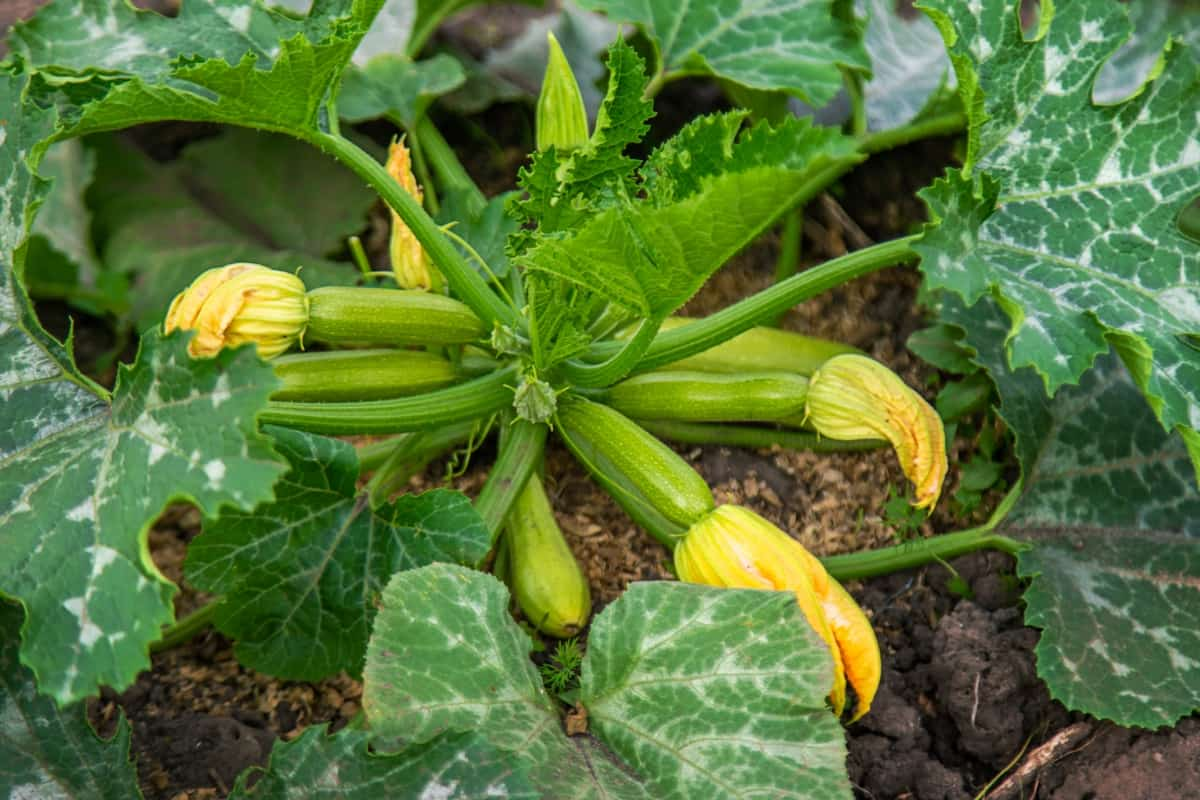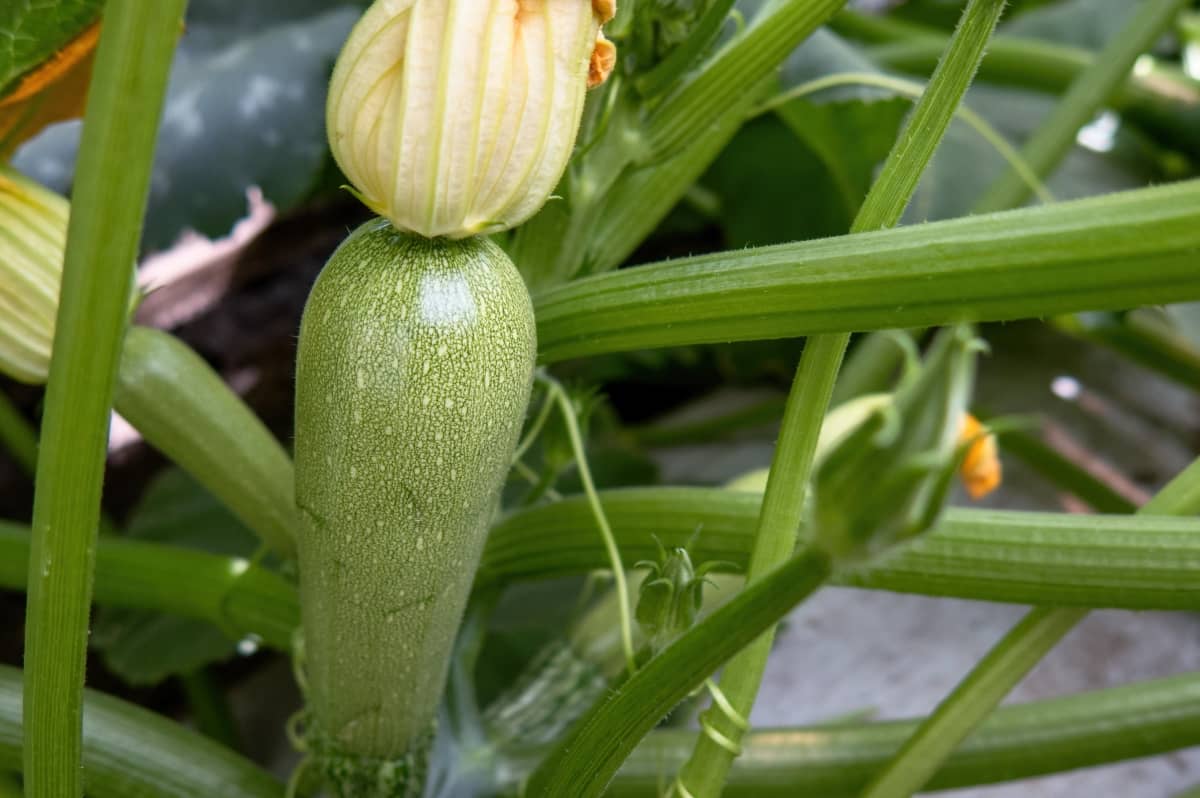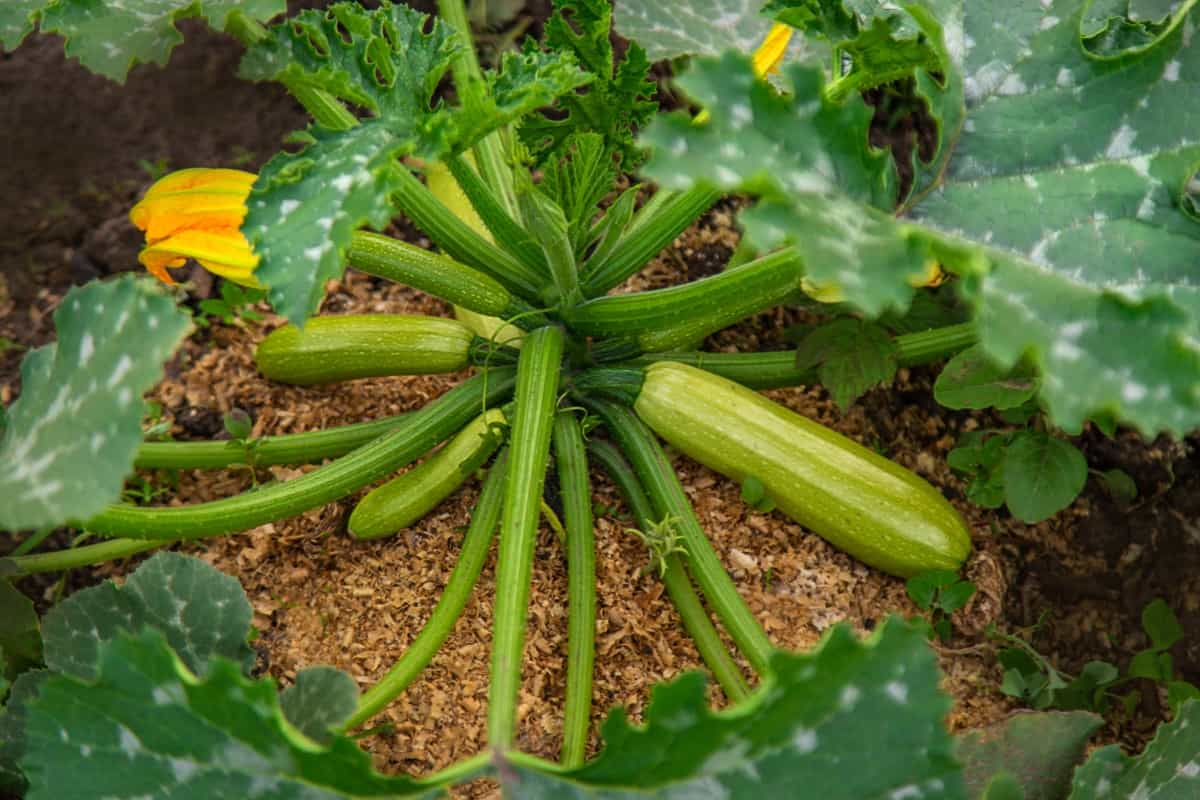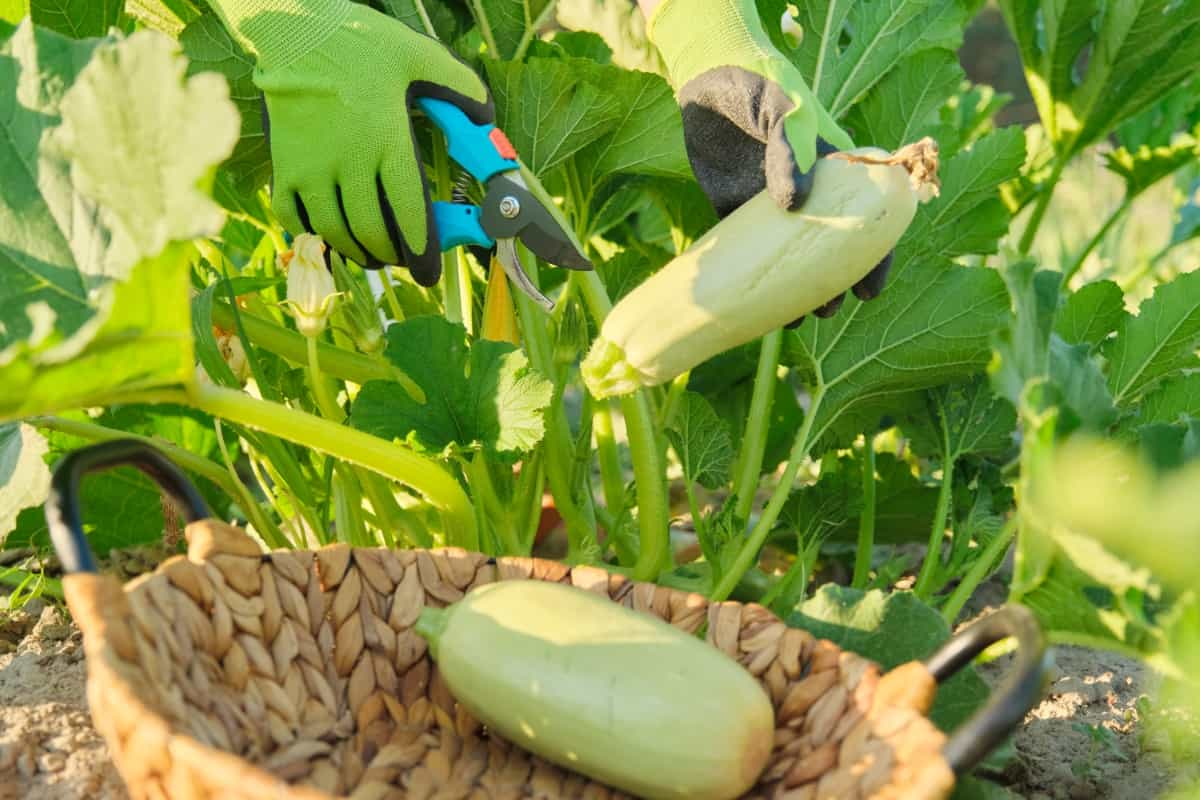Zucchini is not only a versatile vegetable but also a nutritious addition to any diet. To ensure these plants thrive and produce the best yield possible, it is essential to understand the importance of fertilizers. By using homemade and organic fertilizers, you can provide your Zucchini plants with the essential nutrients they need to thrive.

Homemade Fertilizers for Zucchini
Understanding Zucchini’s Nutrient Needs
Understanding the nutrient needs of Zucchini is crucial for successful cultivation and abundant harvests. Trace Nutrients required for Healthy Zucchini Growth include nitrogen, phosphorus, potassium, calcium, magnesium, iron, and zinc. These essential nutrients play a key role in various plant processes, such as photosynthesis, root development, fruit production, and overall plant growth.
Benefits of Using Organic Fertilizers
Unlike synthetic fertilizers that can damage soil health due to their high salt content or chemical additives, organic options provide slow-release nutrients while improving soil structure. Using Homemade Zucchini Fertilizer not only ensures that you are providing your plants with the necessary nutrients they need but also reduces reliance on store-bought products.
Composting for Zucchini Fertilizer
Creating Rich Compost at Home
Creating rich compost at home is a great way to provide your Zucchini plants with the nutrients they need for healthy growth. To start composting for Zucchini fertilizer, collect fruit and vegetable scraps, coffee grounds, eggshells, and yard waste like grass clippings or leaves.
Layer these materials in a bin or designated area in your garden. Green materials include kitchen scraps and fresh grass clippings, while brown materials include dried leaves or straw. Keep the compost moist, but avoid overwatering, which can lead to bad odors. Turn the compost occasionally using a pitchfork or shovel to aerate it and promote decomposition.
Applying Compost to Zucchini Plants
Once your compost has broken down into dark, crumbly soil-like material, known as humus, you can apply it around the base of your Zucchini plants. Gently work Zucchini Compost Mix into the top 2 inches of soil without disturbing the roots too much.
Coffee Grounds as Nitrogen Boost
Preparing Coffee Grounds for Garden Use
When it comes to using Coffee Grounds as Zucchini Fertilizer, first prepare coffee grounds for garden use. Collect used coffee grounds from your morning ritual. Spread them out on a tray and let them dry completely before using them in the garden.
The Role of Nitrogen in Zucchini Growth
Nitrogen is the essential nutrient that plants require for healthy development, including leafy green growth and overall vigor. Excess nitrogen can cause excessive foliage growth at the expense of fruit production in Zucchinis. Aim for a balanced approach by combining other organic fertilizers rich in phosphorus and potassium along with your nitrogen boost from coffee grounds.
In case you missed it: From Zucchini to Butternut: Discover the Top 13 Squash Varieties for Your Home Garden

Eggshell Calcium Supplement
How to Make Eggshell Fertilizer
To make your eggshell fertilizer, start by collecting clean eggshells. Rinse them thoroughly and let them dry. Once they are completely dry, crush the shells into small pieces. You can use a mortar and pestle or simply put them in a plastic bag and gently crush them with a rolling pin.
Calcium’s Importance for Zucchini Health
When it comes to Eggshell Calcium for Zucchini Plants, Calcium plays a key role in cell development and overall plant growth. It strengthens the cell walls of Zucchinis, making them more resistant to diseases such as blossom end rot. By incorporating DIY Organic Zucchini Fertilizer Recipes into your Zucchini garden, you’ll provide your plants with an ample supply of calcium while avoiding the use of synthetic fertilizers that may harm both your plants and the environment.
Banana Peel Potassium Source
Crafting Banana Peel Fertilizer
To create banana peel fertilizer, simply collect a few peels and chop them into small pieces. Then, place the chopped peels in a container filled with water and let it sit for about three days. This allows the nutrients to leach out from the peels and into the water, creating a potassium-rich liquid fertilizer.
Potassium and Zucchini Development
When it comes to Banana Peel Potassium for Zucchini, potassium plays a crucial role in promoting overall plant health and development. It helps regulate water uptake, improves disease resistance, enhances root growth, and aids in fruit production. By providing your Zucchini plants with this homemade potassium boost from banana peel fertilizer, you’re giving them an extra dose of nutrition they need to thrive.
Wood Ash for Soil Alkalinity
Safely Using Wood Ash in the Zucchini Garden
Adding wood ash to your Zucchini garden can be a game-changer when it comes to soil alkalinity. First things first, make sure that the source of your wood ash is from untreated wood. When it comes to Wood Ash Use in Zucchini Beds, remember that moderation is key. Sprinkle evenly over the surface and gently work it into the topsoil with a rake or gardening fork. Avoid piling up excessive amounts, as this can lead to over-alkalization and harm your Zucchini plants.
The Effects of Alkalinity on Zucchini
The benefits of using wood ash are not just limited to adjusting soil pH levels; they also provide essential nutrients like potassium and calcium. Potassium plays a key role in promoting healthy fruit development in Zucchinis, while calcium helps prevent blossom end rot – an all-too-familiar problem for many gardeners.
Fish Emulsion Homemade Recipe
Creating Fish Emulsion Fertilizer
When it comes to Fish Emulsion Fertilizer for Zucchini, you may be surprised to learn that fish can play a vital role. By creating your fish emulsion fertilizer at home, you can provide your Zucchinis with the nutrients they need to thrive. To make fish emulsion fertilizer, start by obtaining some fresh fish scraps or heads from a local seafood market. These leftovers are often discarded and can be obtained for free or at a low cost.
Next, combine the fish scraps with water in a large container and let them sit for several weeks. This allows the mixture to ferment and break down into a nutrient-rich liquid. Once the fermentation process is complete, strain out any solids from the liquid using cheesecloth or a fine mesh sieve. The resulting liquid is now ready to be used as fertilizer for your Zucchini plants.
Benefits of Fish Emulsion for Zucchini
One of the major benefits of using fish emulsion is its high concentration of nitrogen, an essential nutrient for plant growth. Nitrogen helps promote lush foliage and healthy green leaves on your Zucchini plants. In addition to nitrogen, fish emulsion also contains other important elements, such as phosphorus and potassium, which aid in root development and overall plant health. These nutrients help ensure strong stems and abundant yields in your Zucchinis.
In case you missed it: How to Grow Zucchini from Seed to Harvest: Check How this Guide Helps Beginners

Seaweed Fertilizer for Trace Nutrients
How to Prepare Seaweed Fertilizer
When it comes to Seaweed Fertilizer Benefits for Zucchini, Seaweed fertilizer is a natural and organic way to provide your Zucchini plants with the trace nutrients they need for healthy growth. To prepare seaweed fertilizer, start by collecting fresh seaweed from beaches or purchasing dried seaweed from gardening stores.
Rinse the seaweed thoroughly and chop it into small pieces before soaking it in water for several days, stirring occasionally. After the soaking period, strain the liquid into a container and dilute it with water at a ratio of 1:3 (one part seaweed extract to three parts water). This diluted mixture can be used as a foliar spray or poured onto the soil around your Zucchini plants.
Trace Elements and Their Role in Zucchini Growth
The trace elements found in seaweed, such as iron, zinc, manganese, and copper, play crucial roles in various plant functions. Iron aids in chlorophyll production and photosynthesis, while zinc promotes enzyme activity. Manganese helps activate enzymes involved in nutrient uptake and metabolism, while copper assists with reproductive development.
Epsom Salt for Sulfur and Magnesium
Using Epsom Salt in Zucchini Cultivation
When it comes to Epsom Salt Usage for Zucchini Growth, Magnesium is an essential nutrient that plays a vital role in photosynthesis, helping convert sunlight into energy for plant growth. Without enough magnesium, Zucchini plants can become weak and stunted. Sulfur is crucial for protein synthesis and enzyme activity within the plant. It helps with seed production and overall plant development. A deficiency in sulfur can lead to yellowing leaves and reduced fruit yield.
The Importance of Magnesium and Sulfur
By adding Epsom salt to your Zucchini Garden beds or containers, you’re providing a readily available source of both magnesium and sulfur. The roots of your plants easily absorb this natural mineral supplement. To use Epsom salt as a fertilizer for Zucchinis, simply dissolve one tablespoon of it in 1 gallon of water and apply it around the base of each plant once every two weeks during the growing season. The diluted solution ensures proper distribution without overwhelming your plants.
Using Green Manure for Zucchini
Choosing and Growing Green Manure Crops
When it comes to Green Manure Techniques for Zucchini Soil, it is an excellent way to enrich the soil in your Zucchini beds naturally. It involves growing specific crops that are then incorporated back into the soil as nutrient-rich mulch. Not only does it provide a sustainable source of organic matter, but it also helps suppress weeds and improve soil structure.
When selecting green manure crops for your Zucchini Garden, consider plants that are fast-growing and have deep root systems. Some popular choices include Clover, Alfalfa, Buckwheat, and Ryegrass.
Incorporating Green Manure into Zucchini Beds
To incorporate green manure into your Zucchini beds, simply sow the chosen crop seeds densely over the area you want to improve. Allow them to grow until they reach their peak biomass or when they begin flowering. At this point, cut them down close to ground level using shears or a lawnmower.
Next, work the plant material into the top 2 inches of soil using a garden fork or tiller. This will speed up decomposition while ensuring nutrients are released gradually over time. By utilizing green manure in your Zucchini Garden beds regularly, you’ll notice improved fertility year after year.
In case you missed it: Growing Organic Zucchini In Containers At Home

Conclusion
Providing homemade fertilizers for Zucchini plants is a great way to ensure they receive the necessary nutrients for optimal growth and productivity. By understanding their nutrient needs and using organic alternatives, Organic Zucchini Cultivation Tips, you can promote healthy soil, enhance plant development, and ultimately enjoy a bountiful harvest.
- How to Grow Hibiscus from Flower
- Plantation Ideas for Home Decoration: A Beginners Guide
- Flower Garden Designs and Layouts for Beginners
- Planting and Spacing Techniques in Papaya: A Beginner’s Guide
- Growing Gold: Essential Techniques for Planting Pineapples
- How to Make Kalanchoe Plant Bushy: Home Remedies and Solutions
- 11 Reasons Why Your Gardenia is Not Blooming: Home Remedies and Solutions
- Eco Elegance: The Guide to Designing a Drought-Tolerant Landscape
- Gardening on a Slope: Strategies for Hillside Landscaping